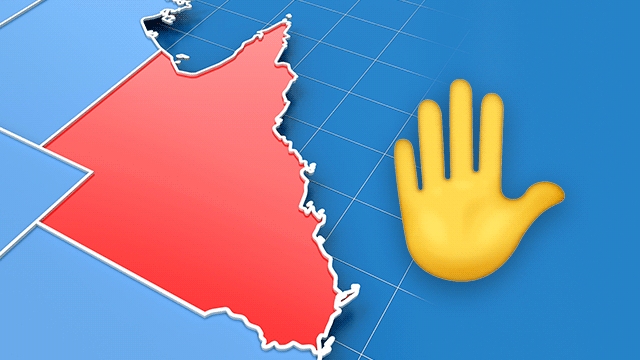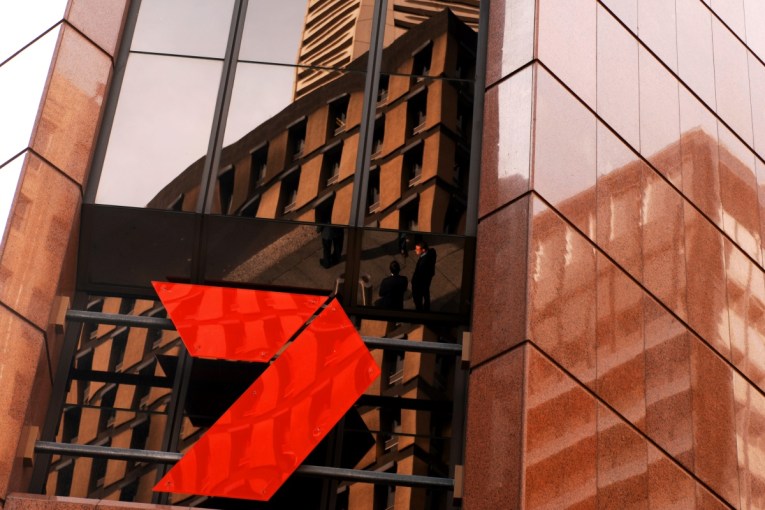Dennis Atkins: The COVID border war is defining the Queensland election


The battle to become Premier of Queensland is being fought over the borders. Photo: TND
The thing that unites the coronavirus pandemic and politics is the numbers.
For Queensland, on the virus front, it’s the rolling average of 500 new infections in Victoria and the much lower but still persistent instances of mystery cases in parts of Sydney and regional New South Wales.
Politically, the numbers are the 12 weeks until the state election, the 66 per cent support for Premier Annastacia Palaszczuk, the 51/49 preferred vote for the Opposition Liberal National Party and the precarious three-seat Labor majority in Parliament.
All these numbers fed into this week’s sudden decision by Palaszczuk to bring down a hard border closure on New South Wales.
To understand why this happened when and how it did, it’s worth reflecting on a visit Palaszczuk made to the Sunshine Coast community of Caloundra in late July.
People lined up in the main street to speak with Palaszczuk, thanking the Premier for “keeping the state safe”.
Having watched the coronavirus spread out of control through Melbourne and Victoria during July, Queensland residents knew two things.
They wanted the absence of community transmission to continue, and they didn’t want to see what was happening “down south” occur in their state.
By the end of July, Queensland had finished more than two months without any community transmission.
Against the backdrop of new infections in Victoria, Palaszczuk was urged by her health advisers, led by the most experienced state chief health adviser in the country, Dr Jeannette Young, to maintain a cautious, conservative line on borders.
With an election just 12 weeks away, Palaszczuk knows she has to listen to what people are telling her, and every day her hard line on borders is reinforced by Young’s advice to stay the course.
In June, the decision to close borders until July 12 was controversial with business leaders, especially in tourism. They mounted a vigorous campaign to pressure Palaszczuk into lifting the travel curbs early.
The political pressure was also intense. The Liberal National Party (LNP) joined the chorus to soften the border policy, demanding they be opened by July 1, if not earlier.
Nationally Scott Morrison – an unswerving opponent of any domestic border closures – kicked political sand at Palaszczuk while his surrogates went in hard.

Queensland premier Annastacia Palaszczuk. Photo: Getty
Since the July 12 border reopening, closures have been reimposed in stages – beginning with those from inner Melbourne hot spots, now with bans applying to all of Victoria and New South Wales, including the ACT.
While many people outside Queensland have been bewildered by these decisions – especially the snap move to shut out people from NSW – within her state, Palaszczuk has overwhelming support for her actions.
As a premier facing an election, Palaszczuk cannot ignore the almost blanket support she is receiving for her handling of the pandemic.
Palaszczuk scoffs at suggestions she’s playing the politics of the situation – such as using social media to highlight the LNP’s record of calling for borders to be opened two dozen times – by pointing out she’s been on the receiving end of attacks for months and is just returning fire.
The discovery of nine new community infections in South East Queensland tipped the political and health scales.
The state seems to have nipped those outbreaks in the bud. There have been five days without new cases until Friday.
This small scare followed by a hard-line return to strict border controls will have enhanced Palaszczuk’s already high personal ratings.
By the time these cases were exposed and the public waiting nervously to see what would happen next, it was imperative to retreat to the conditions prior to July 12.
The health advice was clear – to reduce the chances of community transmission to close to zero, border restrictions had to be reimposed.
Palaszczuk began 2020 as the drifting underdog in the campaign which looked like stretching all the way to the fixed election date of October 31.
She still has a desperate battle on her hands but the virus has changed the politics of the contest just as the pandemic has changed everything else.
The Premier’s sagging approval early in the year – fed by being too loyal for too long to her now-departed deputy Jackie Trad – was matched by support for the government which looked politically terminal.

Former treasurer Jackie Trad. Photo: AAP
Palaszczuk’s personal ratings have grown since April and now sit at a strong two-thirds majority. The government’s standing still lags, with the latest published poll putting the LNP lead within the margin of error.
Palaszczuk’s chances have been helped by infighting in LNP ranks, with a failed push to topple leader Deb Frecklington last month and a mix of wrong-headed and confused positions by the Opposition on borders in recent weeks.
Of course, towering approval for a premier is no armchair ride to victory.
Just under a decade ago, former Queensland Labor Premier Anna Bligh enjoyed seemingly unbeatable ratings after her handling of the 2011 floods but went on to suffer a humiliating defeat by the LNP led by one-term leader Campbell Newman.
Now Palaszczuk is seeking to prevent a repeat of that recent history.
She might be able to translate her own strong position to electoral success in the state’s South East but still lose the election because of a lingering anti-Labor sentiment in the provincial and regional seats along the coast from Noosa to Cape York.
The mood that did so much to give Scott Morrison his “miracle” victory last year is still alive outside Brisbane and could put a brake on Palaszczuk’s political fortunes, especially with the fractured electoral map, encompassing the LNP as well as One Nation, the Katter Australia Party and Clive Palmer.
With this always moving background, the decision Palaszczuk announced on Thursday should surprise no-one, especially in Queensland.
The firm health advice the premier received during the previous 24 hours steeled her hand.
Palaszczuk will be hoping she can keep the pandemic and the politics under control for 12 more weeks.








